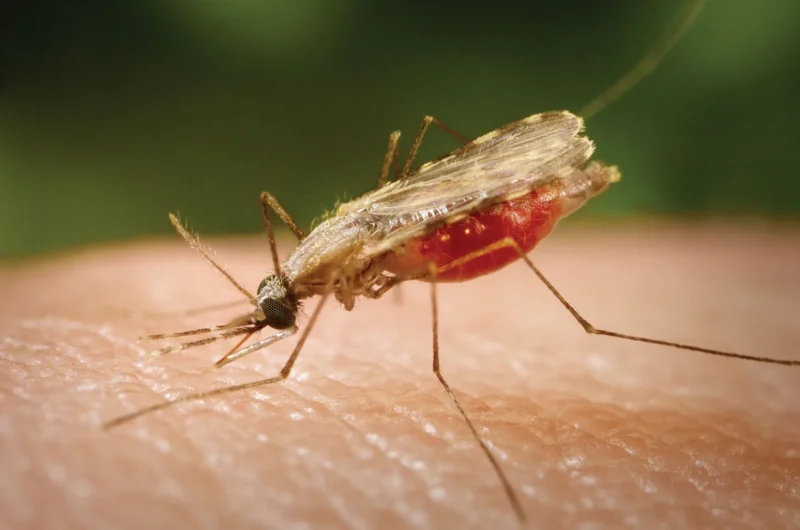In a groundbreaking development in the fight against malaria, researchers have discovered a new chemical compound called MED6-189, which has demonstrated remarkable efficacy against drug-resistant strains of the malaria parasite.
This discovery is a major breakthrough, as malaria remains one of the deadliest diseases globally, with millions of cases and hundreds of thousands of deaths each year, particularly in sub-Saharan Africa.
The discovery of MED6-189 was the result of a collaborative effort between researchers at Yale School of Medicine and two universities in California. Their research, published in the prestigious journal Science and supported by the National Institutes of Health, offers new hope for malaria treatment, especially in regions where existing drugs are becoming less effective.
Malaria’s Global Impact and the Growing Threat of Drug Resistance
Malaria is a life-threatening disease caused by parasites from the genus Plasmodium. It is primarily transmitted through the bites of infected female Anopheles mosquitoes. The most dangerous of these parasites is Plasmodium falciparum, which causes severe malaria and is responsible for the majority of malaria related deaths.
Despite significant progress in preventing and treating malaria, the disease continues to pose a significant global health threat, particularly in sub-Saharan Africa. Over 200 million cases of malaria are reported annually, with more than 400,000 deaths, most of them children under five years old. One of the biggest challenges in fighting malaria is the emergence of drug-resistant strains of Plasmodium, particularly P. falciparum.
According to Choukri Ben Mamoun, a professor at Yale School of Medicine and a leading figure in the study, drug resistance is one of the main obstacles in the fight against malaria. Over the years, P. falciparum has developed resistance to many common antimalarial drugs, including chloroquine, sulfadoxine-pyrimethamine, and, more recently, artemisinin-based combination therapies (ACTs).
This resistance threatens to undermine decades of progress in malaria control and calls for the development of new and more effective treatment options.
The Game Changer in Malaria Treatment
The development of MED6-189 marks a significant step forward in addressing the challenge of drug-resistant malaria. This novel compound has shown remarkable efficacy against both drug-sensitive and drug-resistant strains of malaria, making it a promising candidate for future treatments.
MED6-189 works by inhibiting the growth of Plasmodium falciparum in the blood, effectively preventing the parasite from reproducing and spreading within the human body.
In addition, the compound disrupts the parasite’s ability to transform into the transmissible form that can be picked up by mosquitoes and spread to other individuals. This dual action not only halts the progression of the disease but also reduces the likelihood of the parasite developing resistance to the drug.
According to the researchers, one of the key advantages of MED6-189 is its unique mechanism of action, which targets multiple pathways in the parasite’s life cycle. Unlike other antimalarial drugs that focus on a single molecular target, MED6-189 affects several different genetic pathways, making it much more difficult for the parasite to develop resistance. As Ben Mamoun explains, for the parasite to become resistant to MED6-189, it would need to undergo multiple genetic mutations, an unlikely scenario.
The Collaborative Research Efforts in the Fight Against Malaria
The discovery of MED6-189 is as a result of a multi-institutional collaboration involving scientists from Yale School of Medicine, the University of California, and other research centers. By pooling their expertise in fields such as parasitology, medicinal chemistry, and molecular biology, these researchers were able to identify and develop a compound with the potential to revolutionize malaria treatment.
As the parasite continues to evolve and develop resistance to existing treatments, researchers from around the world must work together to find new solutions to this ongoing public health crisis.
Amy Bei, another researcher involved in the study, emphasized the importance of continuing to invest in the development of new antimalarial drugs. While MED6-189 represents a significant breakthrough, Bei and her colleagues stress that further research is needed to optimize the compound and explore other potential treatments.
Testing and Development of MED6-189
Although the discovery of MED6-189 is a promising step forward, there is still much work to be done before the compound can be widely used as a treatment for malaria. The compound will need to undergo further testing, including clinical trials, to ensure its safety and efficacy in humans.
In addition, researchers will need to explore the possibility of using MED6-189 in combination with other antimalarial drugs to enhance its effectiveness and reduce the risk of resistance.
Combination therapies are already a standard approach in malaria treatment, with artemisinin-based combination therapies (ACTs) being the most commonly used regimen. MED6-189 could potentially be used in conjunction with other drugs to create a new and more effective combination therapy that would be less vulnerable to resistance.
According to Ben Mamoun, one of the key advantages of MED6-189 is its potential to be used as a standalone treatment, reducing the need for multiple drugs and the risk of side effects. However, the researchers are also exploring the possibility of combining MED6-189 with other antimalarials to create a more robust treatment regimen.
The discovery of MED6-189 comes at a critical time, as malaria remains a major public health threat in many parts of the world. In recent years, the emergence of drug-resistant malaria strains has made it increasingly difficult to control the disease, particularly in Africa and Southeast Asia. In some regions, the efficacy of artemisinin-based combination therapies (ACTs), which are the current gold standard for malaria treatment, has begun to decline due to the spread of resistant parasites.
As Ben Mamoun points out, malaria will continue to be a significant global health challenge in the coming years, and it is essential to continue developing new and innovative treatment strategies.
The development of new antimalarial drugs is especially important for vulnerable populations in sub-Saharan Africa, where malaria is a leading cause of death among children under five. In these regions, the emergence of drug-resistant malaria threatens to undo years of progress in reducing malaria-related mortality and morbidity.
The discovery of MED6-189 represents a major breakthrough in the ongoing battle against malaria. This new compound offers hope for more effective treatments, particularly in regions where drug-resistant strains of the parasite have become a serious problem.
As researchers continue to explore the potential of MED6-189 and other new treatments, there is renewed optimism that one day, malaria can be eradicated.









Join our Channel...